On 17 August 2023, the final conference of the REVITAL I project under the ENI Cross-border Cooperation Programme 2014-2020 Hungary-Slovakia-Romania-Ukraine was held in Yanoshi (Ukraine). The main goal of REVITAL I. was to set the foundation for the revitalisation process of the Solotvyno salt mine area through deepened cross-border cooperation between Transcarpathia/Zakarpattia and adjacent areas.
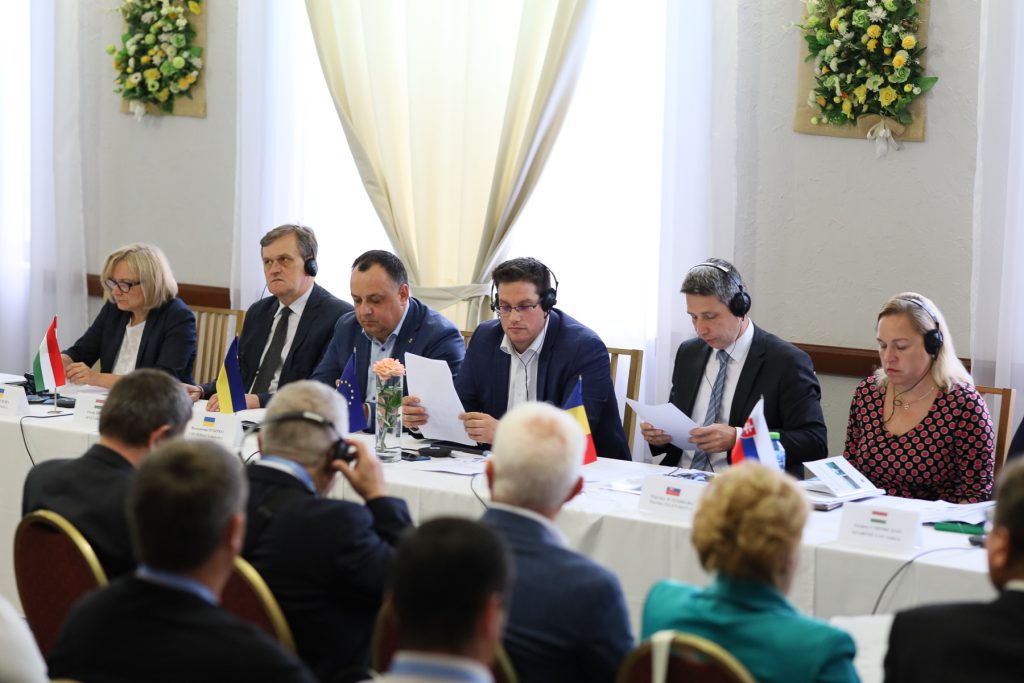
The Lead Partner of the project with a budget of more than 1 million EUR was the Tisza European Grouping of Territorial Cooperation, the first EGTC which includes an entity from a non-EU member state (Zakarpattia Oblast). The event of the project titled ‘Environmental Assessment for Natural Resources Revitalization in Solotvyno to prevent the further pollution of the Upper-Tisza Basin through the preparation of a complex monitoring system’ was organised in Hotel Helikon in Yanoshi.
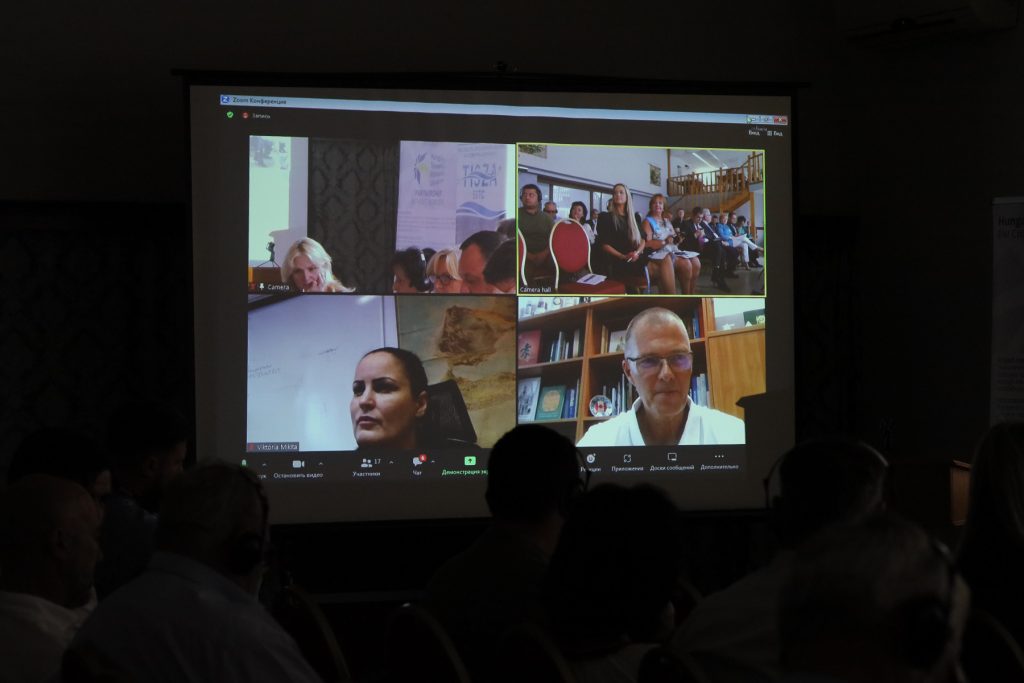
In the frames of the final conference representatives of regional leaders and decision-makers were present from Ukraine, Slovakia, Hungary and Romania. The programme started with the welcome speeches of Volodymyr Chubirko, President of the Transcarpathian Regional Council, Co-president of the Tisza EGTC, Oszkár Seszták, President of the Szabolcs-Szatmár-Bereg County General Assembly, President of the Tisza EGTC, and Mr Balázs Loppert, Coordinator of the Ministry of Foreign Affairs and Trade of Hungary. Viktor Oroszi, EUSDR national coordinator of the Ministry of Foreign Affairs and Trade of Hungary as well as János Kocserha, Vice-Mayor of Solotyno, briefly introduced the need for and the history of the joint cooperation that resulted in the elaboration of the project.
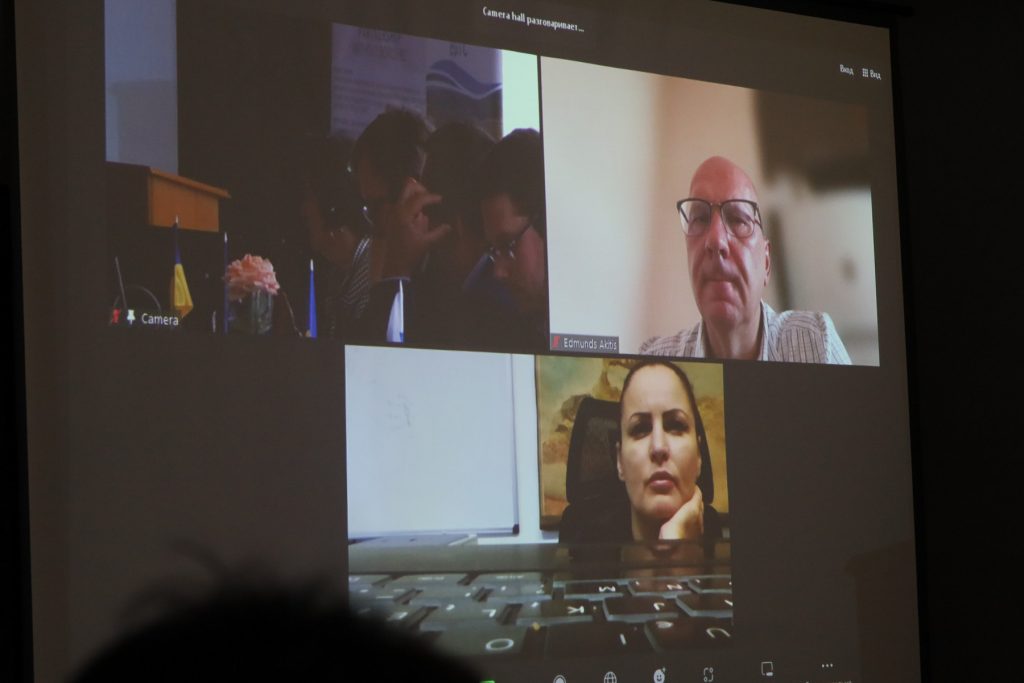
Due to the collapse of several shafts of the salt mine, high salt contamination was measured in the Tisza River in 2008. The government declared emergency situation in 2010, and the Hungarian Ministry of Foreign Affairs managed to activate the European Union Civil Protection Mechanism resulting in an advisory mission of 2016 formulating recommendations on which the REVITAL project has been based.
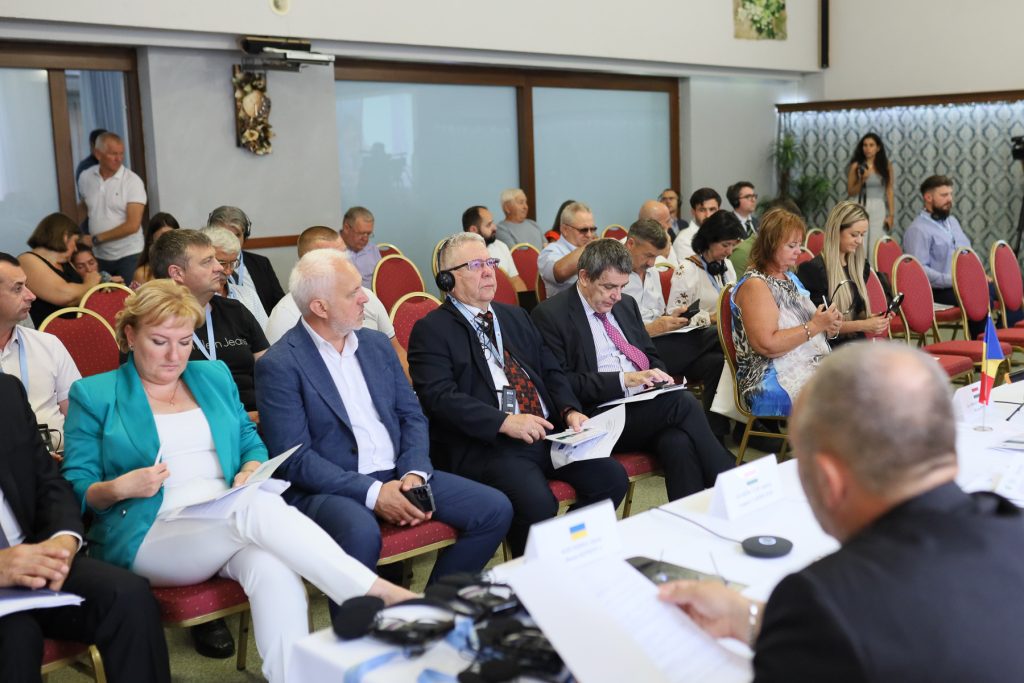
In the second session of the conference the partners summarised the result of the examination and evaluation of the recent environmental and socio-economic state of the Solotvyno salt mine area that involved geological, geomorphological, structural, hydrogeological, hydrological examinations with the aid of cutting-edge technology.
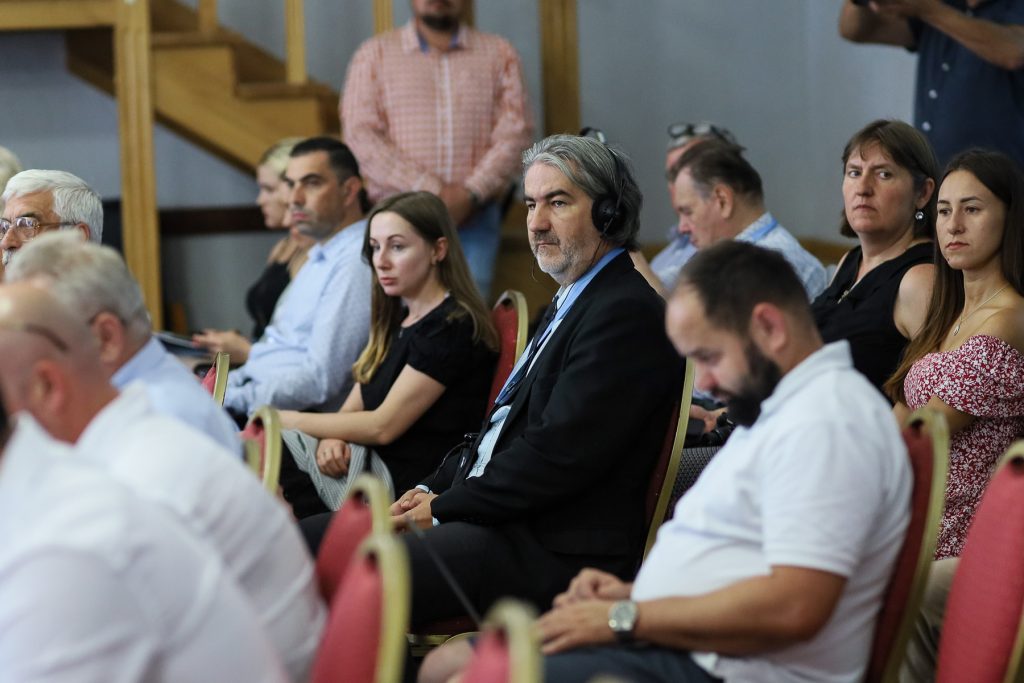
First, Roland Hesz from CESCI briefly introduced the geographical context and gave a deeper understanding of the complex, cross-sectoral issues that shape the present-time of Solotvyno. He underlined that Solotvyno is situated in the transnational Tisa Valley, and due to its upstream position it has an effect on the whole transboundary catchment area located along the Tisa.
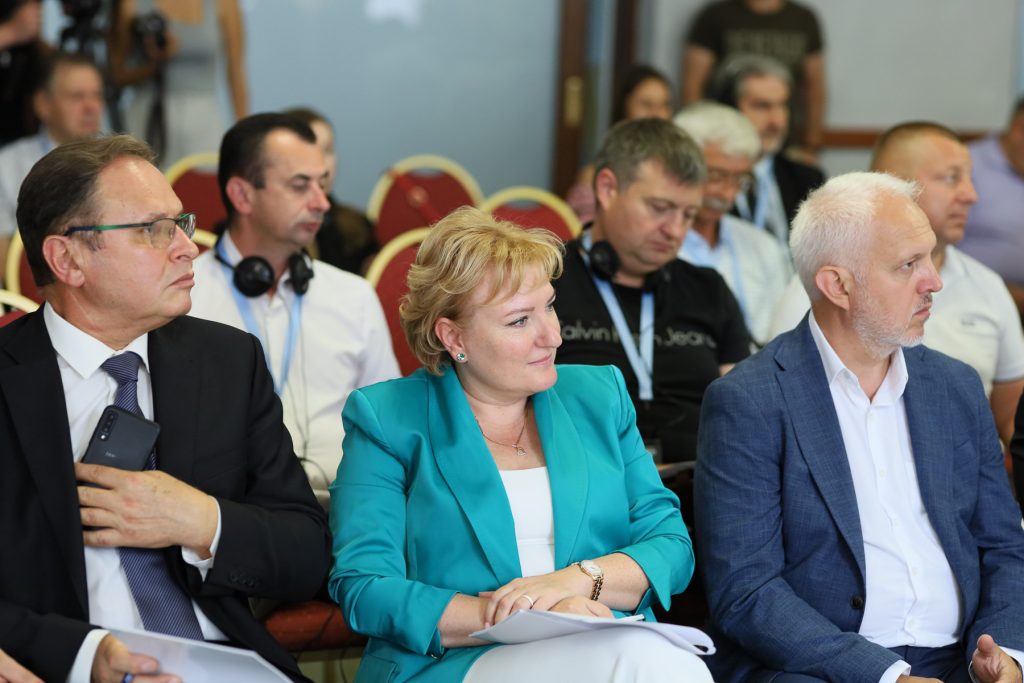
As he stated, without comprehensive territorially integrated interventions based on the existing functional areas incorporating Solotvyno, the municipality would not be able to utilise its territorial capital and local endowments, and the problems will be reproduced on a longer term. Experts from the Institute of Water and Environmental Management, University of Miskolc the Institute of Geological Sciences of the Academy of Sciences of Ukraine, the Faculty of Civil Engineering of the Technical University of Košice presented various valuable field measurements and scientific results including ground deformation mapping by satellite, alluvial surface model done in 3D, electrical conductivity profile of water bodies, examination of groundwater flow, measurement of chloride ion concentration, etc. One of the greatest outcomes is the elaboration of the Complex Monitoring System Plan for Solotvyno salt mine area and its surroundings and the developed hydrodynamic model.
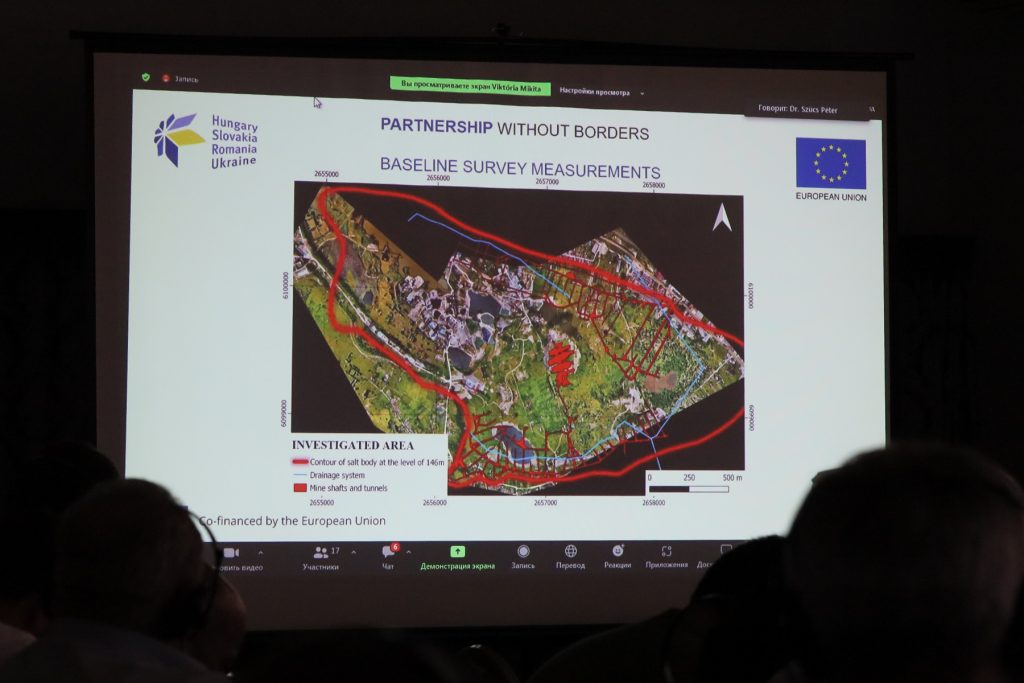
In the next block Edmunds Akitis EU Disaster Risk Manager presented the Strategic Concept Note, drafted by the project partners, that summarises all the main findings and recommendations that are worth being considered by the decision-makers and stakeholders interested in the topic.
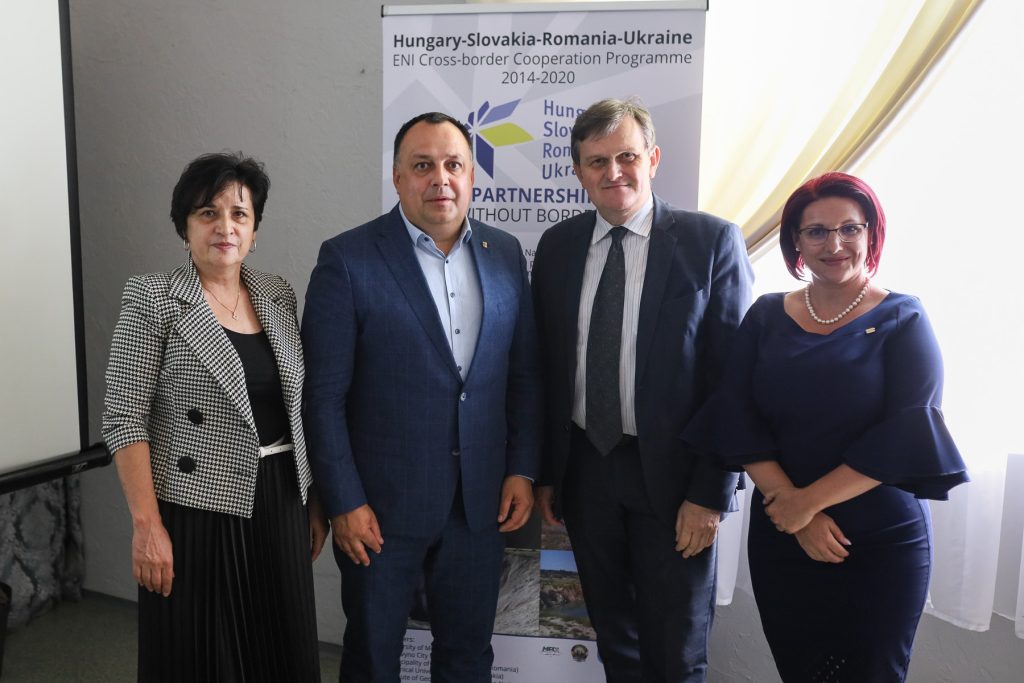
At the end of the conference, all parties and representatives agreed on the exploitation of the project results through further projects and collaboration. Priority areas that were agreed by all major stakeholders include the deployment and operation of a more extensive monitoring network to track the future changes in water bodies and land movements. Waste management in Zakarpattia is another area of joint interventions. An agreement was reached to create the conditions for the use of natural resources, for health tourism (medical, rehabilitation, recreational) without creating additional risks for human life and negative consequences for the environment. Further research needs to be performed to assess the ecological and economic feasibility of resuming salt production.
